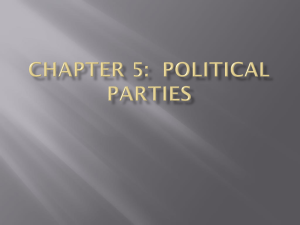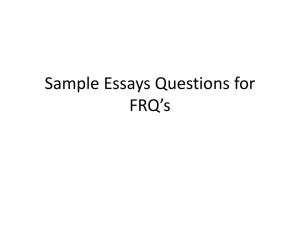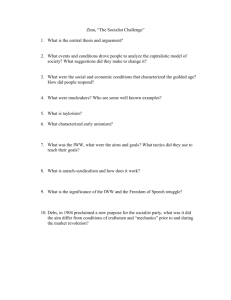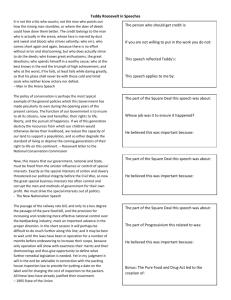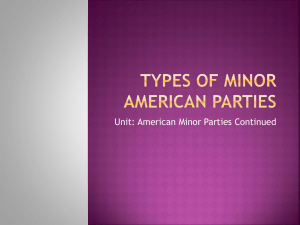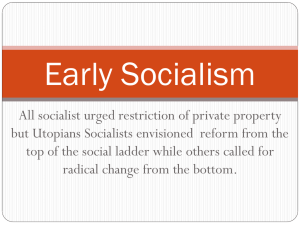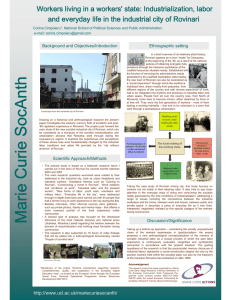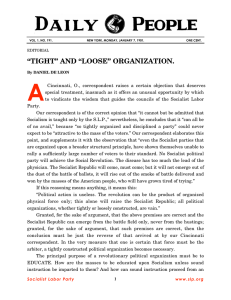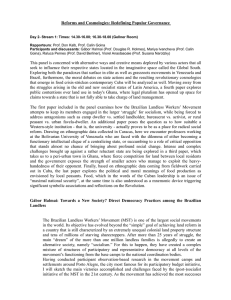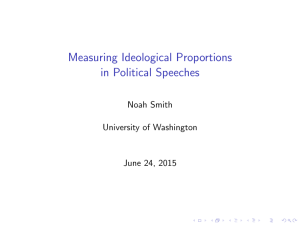Political Parties.1
advertisement
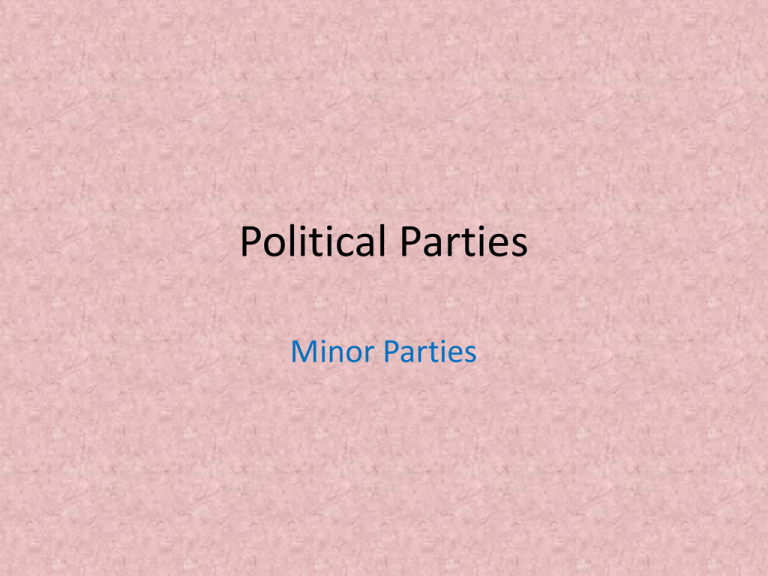
Political Parties Minor Parties Objectives • 1. Identify the types of minor parties that have been active in American politics. • 2. Understand why minor parties are important even though they seldom elect national candidates. ??? • Libertarian, Reform, Socialist, Prohibition, Natural Law, Communist, American Independent, Green, Socialist Labor, Constitution. • What do these names have in common? • All minor parties • All fielded a presidential candidate in 2000 Definition • Political Party – an organization of citizens who wish to influence and control government by getting their members elected to office. • Minor parties are usually associated with a certain agenda and are not usually able to get national candidates elected to office. Types of Minor Parties • Four distinct types of minor parties • A. Ideological parties – based on a particular set of beliefs • Most built on teachings of Karl Marx. • Examples – Socialist, Socialist Labor, Communist • Different – Libertarian Party – emphasizes individualism and doing away with governments present functions and programs. • B. Single-issue parties – concentrate on one public-policy matter • Example – Free Soil Party – opposed spread of slavery • Right to Life Party – opposes abortion • C. Economic protest parties – no clear-cut ideological base • Mainly sectional parties drawing strength from the South and West. • Example – Greenback Party – agrarian discontent from 1876-1884 – appealed to struggling farmers – called for federal regulation of railroads, free coinage of silver, income tax, labor legislation • When the problem disappears the party disappears. • D. Splinter parties – split away from major parties. • Example – Teddy Roosevelt’s “Bull Moose” Progressive Party. • George Wallace’s American Independent Party • Most form around a strong personality – as personality fades the party fades. Why are they important? • Have an impact on american politics and the major parties. • A) Anti-Masons – first to use a national convention to nominate a presidential candidate – 1831. Whigs and Democrats followed in 1832. Has been used by Democrats and republicans ever since. • B) Can be a spoiler in an election – can pull votes away from a major party. • Example – When Teddy Roosevelt broke off it split the Republican Party and allowed Woodrow Wilson to win the election as a Democrat. He would not have won otherwise. • C) Most important role is as a critic and innovator. • Will make a stand on an issue that major parties are hesitant to address. • • Examples – income tax, women’s suffrage, railroad and banking regulations, consumer safety. • Once the issue becomes prominent the major parties “steal it” and claim ownership.

